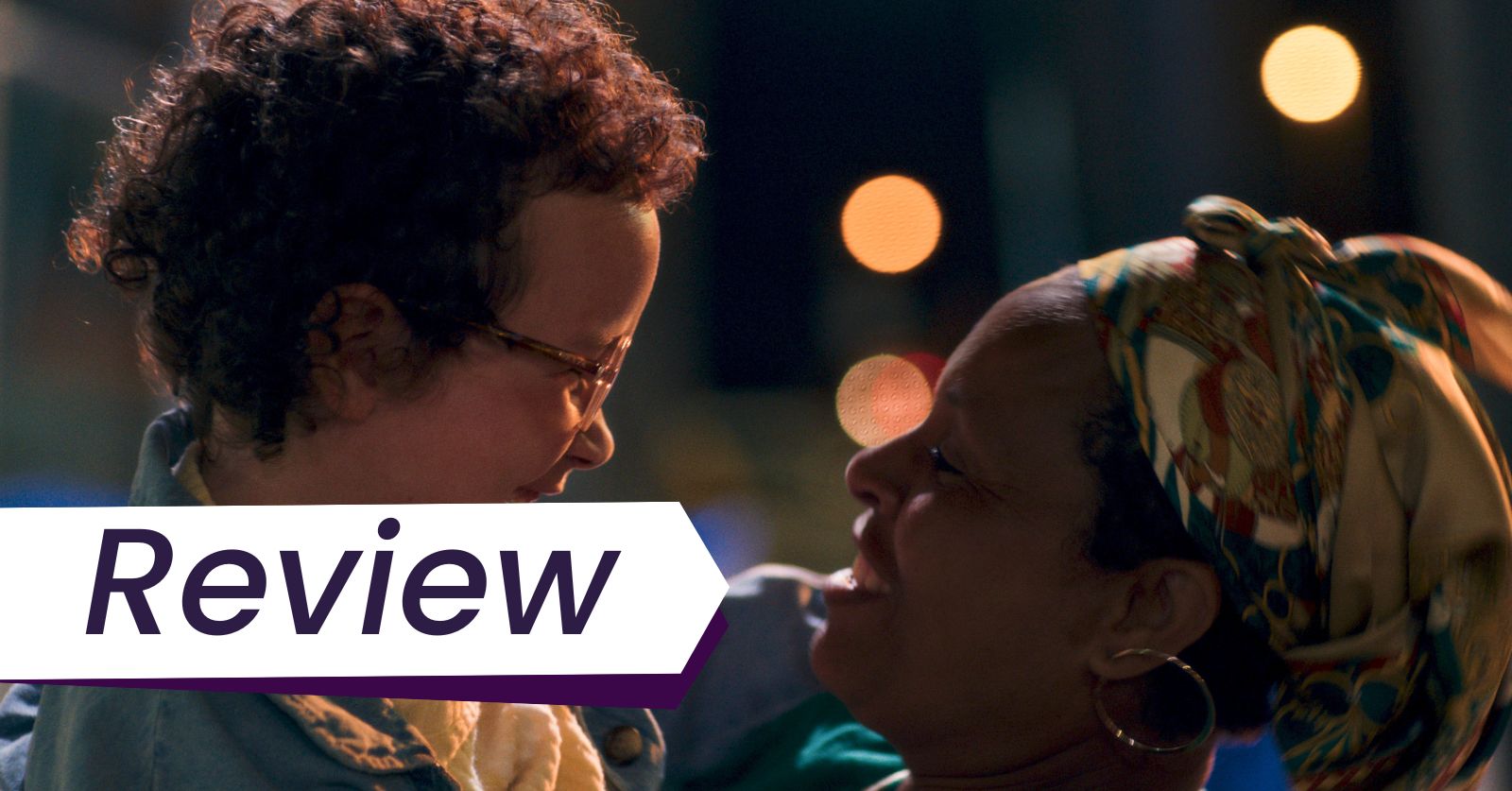Marie Amachoukeli-Barsacq’s Àma Gloria is a touching, sentimental film about the bond between a young French girl, Cléo (Louise Mauroy-Panzani), and her nanny from Cape Verde, Gloria (Ilça Morena). The film had its premiere at the 2023 Semaine de la Critique at Cannes and screens at the 2024 Rendez-Vous with French Cinema
Discover more great films from the Rendez-Vous With French Cinema.

Discover one film you didn’t know you needed:
Not in the zeitgeist. Not pushed by streamers.
But still easy to find — and worth sitting with.
And a guide to help you do just that.
Marie Amachoukeli-Barsacq’s Ama Gloria, her first feature as a solo filmmaker (she co-directed 2014’s Party Girl), is a touching, sentimental film about the bond between a young French girl, Cléo (Louise Mauroy-Panzani), and her nanny from Cape Verde, Gloria (Ilça Morena). Cléo’s mother died years before. Gloria moved to France to earn a living to support her two children back home, whom she now hardly knows. Told mostly from Cléo’s perspective, Amachoukeli-Barsacq keeps the camera low at her sightline, often with shallow focus, as she’s someone still discovering the world.
When Gloria’s mother dies unexpectedly, Gloria must return home to her family in Cape Verde, severing the mother-daughter-like bond she has with Cléo. But before they say goodbye forever, Cléo spends a summer with Gloria in Cape Verde.
Dropping into an unknown world
Cléo’s naivety about her surroundings means that Amachoukeli-Barsacq can shoot the customs and daily life in Cape Verde as something that still feels foreign — she herself is not from Cape Verde — but never veers into exoticization.
Dropped into a world she doesn’t know or understand, Cléo must come to terms with how she doesn’t belong here or with Gloria anymore, even though they share a bed during their stay. In Cape Verde, Cléo finds a beautiful community, which faces a level of poverty that is outside her experience. She doesn’t like sharing Gloria with her children, and Gloria’s children resent Cléo for taking their mother from them, even now. Still, her visit is a mostly positive one, and Amachoukeli-Barsacq lets us bask in the blue skies and sea, and the rich colours of the land.
Àma Gloria is a tactile film
Marie Amachoukeli-Barsacq’s aesthetic is very tactile. She is very attuned to the physical language of touch between Gloria and Cléo. We often see Cléo sitting or standing wedged between Gloria’s thighs, resting her head on Gloria’s chest, or simply holding hands. They’re affectionate in a way that may no longer be helpful to them. Cléo tries to comfort Gloria about the lost of her mother by explaining that she lost her, too, but she’s OK now.
We wonder how much Cléo has simply replaced her mother with Gloria. Cléo is always discovering the world with her hands and feet touching new things and ground, and her eyes always taking in her surroundings; the film begins, after all, with her getting tested for a pair of glasses to see the world afresh. Short and colourful animated sequences spliced throughout the film offer a sort of subconscious read of Cléo, who hasn’t quite unde
stood her emotions yet.
Cléo’s perspective limits the film’s explorations in Àma Gloria
If the film feels a little slight, it’s perhaps because it is so immersed in Cléo’s perspective. Films like Second Mother and The Maid, which also deal with the complex relationship (and in those films, power dynamic) between a nanny and her charge, go deeper into the psychology of the carer and are richer for it. Ama Gloria, meanwhile, never fully acknowledges how colonialism has ripped Gloria from her family and turned Cléo into her temporary surrogate child.
The film doesn’t quite dig into how Gloria’s absence has strained her relationship with her children and what the job in France meant for her and their futures. Her son lashes out at Cléo, and her daughter has doubts about her pregnancy, perhaps because of the position her mother was forced into by having children. But we rarely see how Gloria feels about this and whether this affects her feelings about Cléo.
Instead, Amachoukeli-Barsacq focuses on the emotional connection between Gloria and Cléo and how they slowly and painfully come to terms with its end.
The final shots will destroy you, and the film cuts to black with an indelible, heartbreaking image.
Related reading/listening to Marie Amachoukeli-Barasq’s Àma Gloria
More stories of childcare workers and their charges: Chilean filmmaker Sebastián Silva’s The Maid (which we briefly discuss on the podcast) and Brazilian filmmaker Anna Muylaert’s The Second Mother explore some similar terrain as Ama Gloria.
More recent French Cinema: Four French films directed by women made our list of the Best Films of 2023. Alice Winocour’s Revoir Paris and Rebeca Zlotowski’s Other People’s Children both screened at last year’s Rendez-Vous. We also loved Claire Simon’s documentary Our Body and Sandrine Kiberlain’s A Radiant Girl. Éric Gravel’s thriller about a single mother, Full Time, also made the list.
More past highlights from Rendez-Vous with French cinema: Our #3 film of 2020, Mikhaël Hers’s Amanda, has yet to secure US distribution. (It is available on VOD in Canada and the UK.) We also love Philippe Faucon’s Fatima, r which screened in 2016. His most recent film, Les Harkis, is excellent and screened last year, but has yet to receive distribution.

